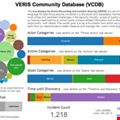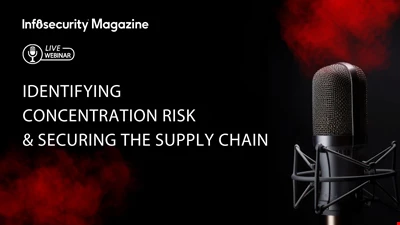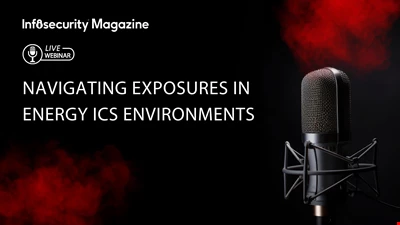Infosecurity News

VERIS: A New Database for Sharing Security Incident Information
A new community database has been launched by Verizon to help bridge the uncertainty gap in data breach information: what we know and what we need to know. Based on VERIS, it is designed to facilitate the secure sharing of incident information for the good of all.

XKeyscore – the Front End that Queries the NSA Databases
The Guardian has released the latest of its Edward Snowden leaks – NSA training material for a system called XKeyscore that allows analysts to search through vast databases of emails, online chats and browsing histories.

Black Hat 2013: Responsible Disclosure on Increase through Bug Bounty Program
Responsible zero-day vulnerability disclosure is on the increase, according to Brian Gorenc, manager of HP’s Zero Day Initiative.

What is the Syrian Electronic Army?
As the Syrian Electronic Army (SEA) continues its hacking spree across largely Western organizations, it is worth pausing to question: what is the SEA, how does it operate, and what are its motivations?

83% of Mobile Apps Exhibit Risky Behavior
iOS apps are worse than Android apps, and free apps are worse than paid apps – but in a study that has implications for both personal and BYOD use, as many as 83% of all apps exhibit at least one form of risky behavior.

UK's Porn Surfing Filter Continuing to Create Waves
It's a question of where to start: TalkTalk's filter provided by Huawei; more than porn will be blocked; UK's 'pornification' MP Claire Perry hacked and now sued; at least one ISP in open rebellion; and Anonymous launches op PornStorm.

Google's Chromecast Video Streaming Product Hacked Already
Google's Chromecast, a $35 device for streaming internet video to the TV, has been rooted within days of its launch.

Twitter Troll Arrested
Caroline Criado-Perez successfully campaigned for the inclusion of women on British banknotes. But from the moment it was announced she had succeeded and that Jane Austen will appear in 2017, she has received a barrage of abuse and threats via Twitter.

Lenovo Computers Banned by the 'Five Eyes' Spy Agencies
A new report claims that computers from the world's largest PC manufacturer, China's Lenovo, have been banned from use within the interconnected intelligence networks of the US, UK, Australia, New Zealand and Canada.

ATM Hacker Barnaby Jack Dies at Age 35
Well-known “ATM hacker” Barnaby Jack died on Thursday in San Francisco. He passed away just ahead of the Black Hat conference where he was planning to speak on “Hacking Humans,” including a man-killing compromise of heart implants.

US Authorities Indict 5 Men for Largest Ever Data Breach Conspiracy
Four Russians and one Ukrainian were yesterday charged with conspiracy in a worldwide hacking spree that stole 160 million credit card numbers and cost the victim companies hundreds of millions of dollars.

Major French Web-hosting Company Hacked
French web-hosting company OVH has admitted that it was hacked when the internal network at its offices in Roubaix was compromised. Customers in Europe and North America are affected.

ISACA Releases COBIT 5 Guide for Managing Vendor-based Security Risks
As enterprises increasingly rely on cloud service providers and other third-party vendors to provide fundamental services, the related security risk becomes more significant. Global IT association ISACA has released a new guide applying the COBIT 5 business framework for the governance and management of enterprise IT to help enterprises effectively manage vendors.

KPMG: Every FTSE 350 Firm is a UK National Security Threat
The companies on the London Stock Exchange pose a serious risk to the UK’s national security, according to KPMG, which found that all FTSE 350 firms are leaking data that can be used by a range of cyber attackers, including state-sponsored cyber-spies.
ICO Says Police License Plate Monitoring Must Stop
One week ago the ACLU revealed widespread US police license plate monitoring and complained of too few rules to prevent abuse. Yesterday the ICO used the UK's data protection law to tell UK police to stop doing similar.

Mobile and Home Networking Malware Creep On
One would have to be living under a rock, or using two cans and a piece of string to communicate, not to be aware that mobile and WiFi security threats are escalating as wireless networking penetration rises. The latest numbers reveal that in the second quarter of 2013, a full 10% of home networks and more than 0.5% of mobile networks were infected with malware.

NIST Tweaks Digital Signature Standard
The US National Institute of Standards and Technology (NIST) has released a revision to the digital signature standard used to ensure the integrity of electronic documents, as well as the identity of the signer.

Oxford Expands its Cybersecurity Education
The University of Oxford is poised to broaden its cybersecurity education offerings, with advanced degree training beginning this autumn.

Move Over Zeus: KINS Banking Trojan Looks to Be the Next Great Financial Crimeware
A new professional-grade banking trojan is stepping into the cybercrime vacuum left by Zeus and Citadel – and looks to be as effective as those notorious kings of crimeware have been at draining people’s bank accounts.

Calling All IT Security Professionals: How to Stay Secure at BlackHat and DEFCON
Hacker conferences, like Black Hat and DEFCON, are notorious for highlighting the security missteps of attendees. Before the show, which takes place in Las Vegas next week, IT security professionals should take every security precaution to prevent being hacked.



